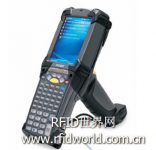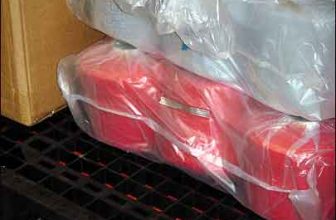
Environmental protection men’s clothing store Maskyelin will use RFID system for inventory management and transaction payment
[ad_1]
An environmentally friendly men’s clothing store and a physical and mental skin therapy shop Maskyelin will open a branch in King of Prussia, Pennsylvania, USA in April 2008. At that time, an RFID system will be used in the store for product tracking and transaction payments. The system provided by Atlas RFID Solutions will help stores better avoid the phenomenon of empty containers, and at the same time, by equipping sales staff with handheld readers to avoid customers waiting in line for payment.
This 3,400-square-foot retail store will sell high-end men’s clothing, such as shirts and socks, as well as men’s cosmetics, towels and other luxury goods. These products are made of environmentally friendly materials, such as bamboo; the care center in the store will also Will sell environmentally friendly products, said the company’s president Jamiel Price.
We use high-quality clothing made of sustainable materials to provide human comfort while maintaining a green environment. Price said that he has long been interested in using high technology to achieve effective inventory control and improve the shopping experience. In 2007, Price began to consider using RFID to ensure that shoppers can find the products they want and complete transactions faster without waiting in line.
At the garment factory in Maskyelin, China, workers stick tags containing RF IDentics Flex Wing EPC Gen 2 RFID inlays on each piece of clothing or box. Before sending to the factory, RFIDentics pre-encodes the ID number of the label, and prints product information, such as size, color and style, on the surface of the label. After the worker receives the label, he sticks the label on the clothes, and the ID number of the label corresponds to the information of the stuck product in the database.
The goods are transported directly from the factory to the store; after unloading at the receiving station, the staff put the goods on a mobile receiving cart and send it to the back-end warehouse. The trolley was developed by Atlas RFID Solutions, and each car is equipped with an Omron V750 RFID reader and four antennas to capture RFID tag data, said Mark Brown, Atlas RFID Solutions’ program director. The trolley will read the labels of the goods and send the data to the store’s backup Macintosh-based management system via the Wi-Fi data network. The management system uses Atlas RFID Solutions software to record the history of goods receipt.
In the warehouse, goods are placed on containers according to their type, such as style or brand. Bar codes are affixed to the shelves for easy identification. In daily life, employees will use Motorola MC9090G handheld RFID readers (equipped with a total of 3) to read goods labels and shelf bar codes, and link the goods with the stored shelves, and the bar code scanners are embedded in the readers. Price said that the use of barcodes instead of RFID tags for the containers is to avoid obtaining the ID numbers of several containers at the same time.

Motorola MC9090G handheld reader
The handheld reader can be set into several modes to complete different tag reading situations. For example, in the “physical calculation” mode, the handheld can search only a certain type of inventory in a specified place, ignoring other inventory goods that do not meet the description.
In the “storage” mode, the handheld only scans the barcode of the container to find a suitable container to store the clothes, and the label of the clothes is read by the trolley reader.
In the evening, the staff used Motorola handhelds to perform inventory at the buying site and the back warehouse to determine whether they needed to reorder the goods. The data is wirelessly transmitted to the back-end system, automatically notifying the store which items need to be restocked.
In the buying field, if the cash register waits for a long time, customers can choose to pay on the Motorola MC9090G handheld reader equipped by the sales staff. The reader includes a magnetic stripe reader for reading credit cards. The salesperson scans the RFID tags of the clothes, then swipes the credit card to complete the transaction, and prints out the receipt. The customer shows the receipt to the security guard at the door to prove the completion of the transaction. The transaction data is wirelessly transmitted to the store’s Macintosh Light Speed POS system.
This English project is divided into two phases. In the second phase, Maskyelin plans to distribute membership cards embedded with RFID tags to customers in order to track customers’ shopping habits.
[ad_2]




